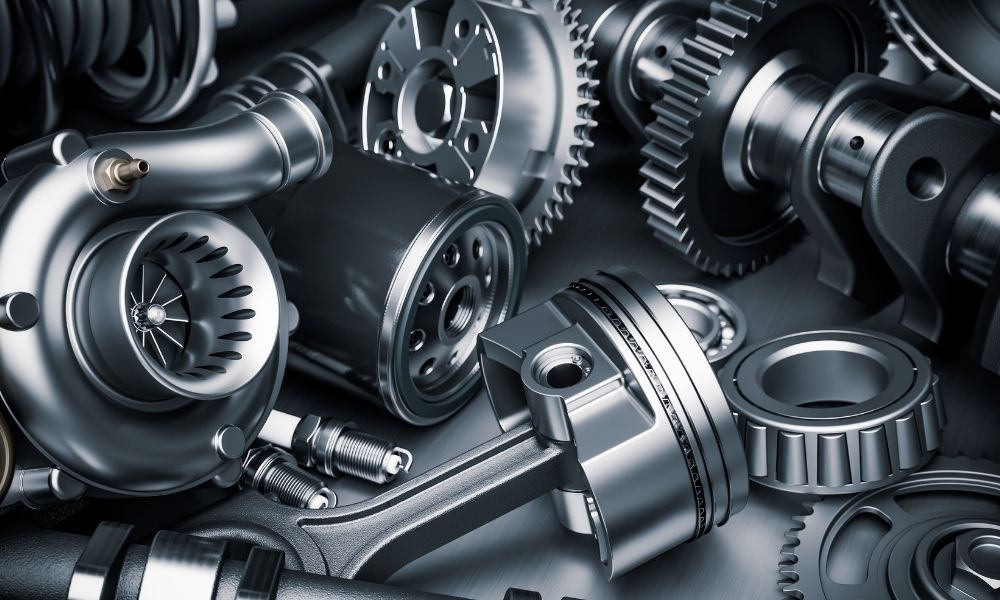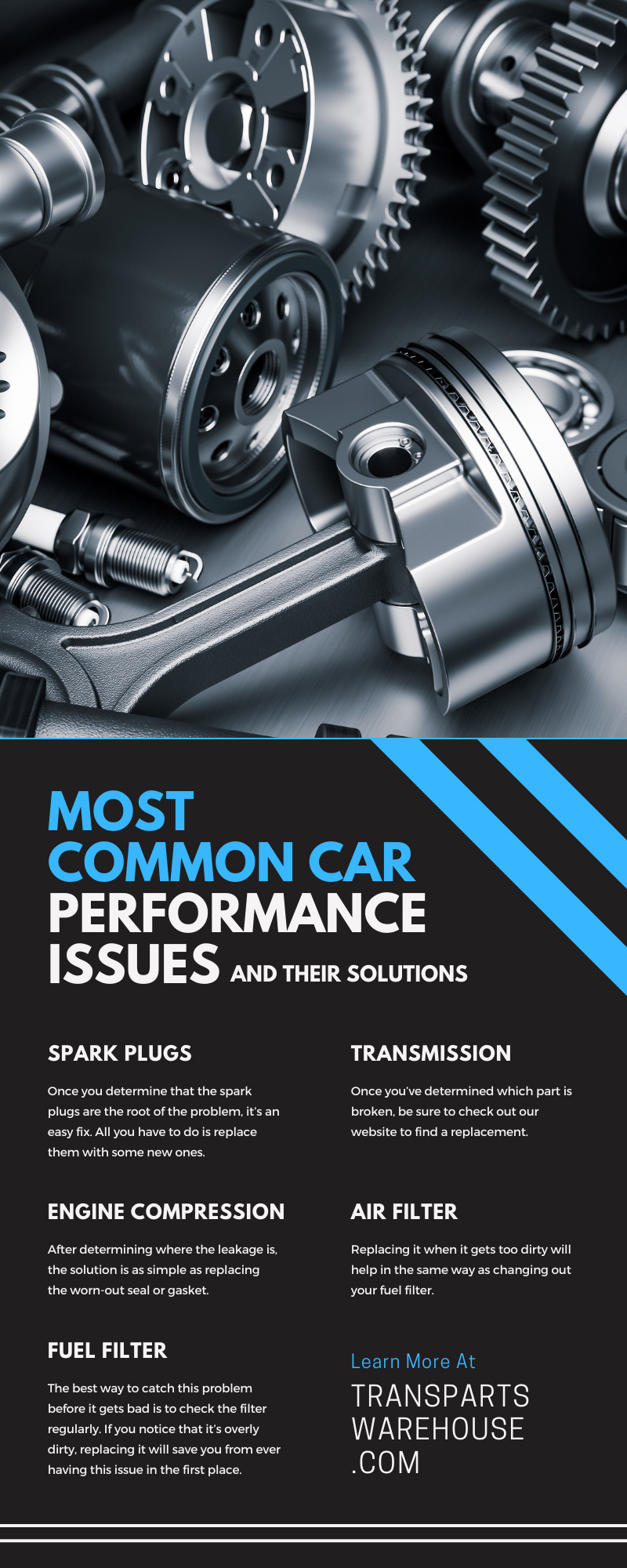
When it comes to car problems, a good amount of people who own one tend not to notice that something is wrong until their vehicle completely stops working. Then, they take it to the shop and have them figure out what happened to it. While there’s certainly nothing wrong with that, like any problem you’ll encounter, it’s better to catch it early on.
That’s why knowledgeable car owners try to take notice of dips in their vehicle’s overall performance. That way, they can fix the issue before it gets too bad. If this is something you’d like to be able to do with yours, then this list of the most common car performance issues and their solutions will be a great place to start learning how to catch a problem and fix it before it gets worse.
Spark Plugs
Let’s start this list off with a common one. Many people don’t realize that their spark plugs have gone bad until their car will no longer start. However, if you notice issues popping up, such as various hesitations with your engine or rough idling, the spark plugs are likely to blame. If your spark plugs start interfering with your engine’s air-to-fuel ratio, they could cause the check engine light to come on.
Fortunately, once you determine that the spark plugs are the root of the problem, it’s an easy fix. All you have to do is replace them with some new ones.
Fuel Pump
Of course, the quality of your spark plugs doesn’t really matter if they’re not getting enough fuel to work with. If your engine is getting less gasoline than it should, the cause might be from a weakened fuel pump. This is the device that pulls gas from your vehicle’s tank and pushes it into the engine. If it isn’t as strong as it needs to be, performance issues such as troubles driving up hills or a loud whining noise are sure to follow.
Even though the only real fix for this is to replace the fuel pump, there is one thing that you can do to prolong its lifespan before it goes bad, which is not regularly letting the amount of gas you currently have go below a quarter tank. While this is fine on occasion, doing it all the time will put unnecessary strain on your pump, shortening its overall life expectancy.
Engine Compression
Let’s imagine both of those previous parts are in excellent condition, but you’re still losing some horsepower while on the road. The problem might not be directly from a malfunctioning part, but due to a lack of engine compression. Having a tight seal in your engine’s compression chambers is vital for the combustion process, so losing that will have noticeable adverse effects.
While determining if and where this problem is occurring in your engine can be challenging to do on your own, it’ll be much easier to figure out if you own a compression gauge. If you don’t have one, you might need to get some assistance from a local shop. Fortunately, after determining where the leakage is, the solution is as simple as replacing the worn-out seal or gasket.
Transmission
Obviously, not every dip in power will originate from the engine itself. Other sources, such as the car’s transmission, can be the root of the problem. Transmission can be a tricky car part to deal with. For many issues, it’s simply easier to replace it than fix it, but if the problem has to do with old or low amounts of transmission fluid, you can very easily resolve it yourself.
Most of the time, a simple fluid replacement will fix the issue, but when the levels are low, the reason could be that there is a leak. If you even notice a bright red puddle under your car, you’ll know that your transmission is leaking.
Once you’ve determined which part is broken, be sure to check out our website to find a replacement. We have all the performance transmission parts in stock that you could ever need. Once your part comes in, you’ll be able to replace the broken one out and have your transmission working like new again.
Fuel Filter
One thing we didn’t mention earlier when talking about the fuel pump was the fuel filter, and it can be a culprit of your vehicle’s performance issues. Its location in the car is between the pump and the fuel injectors, and its primary purpose is to cleanse the gas of any of its impurities that could negatively affect the combustion process.
The best way to catch this problem before it gets bad is to check the filter regularly. If you notice that it’s overly dirty, replacing it will save you from ever having this issue in the first place.
Air Filter
Some people don’t realize that impurities have a second route to getting inside of your engine, and that’s through the air that is needed for the process. However, air filters help keep the oxygen used for combustion as pure as possible, but just like the fuel filter, these will get dirty over time.
That means you need to check on the air filter whenever possible as well. Replacing it when it gets too dirty will help in the same way as changing out your fuel filter. The cleaner the air inside your engine is, the better it’ll run.
Exhaust Pipe
Of course, what goes in must come out, and if there are problems at the exit point, or the exhaust pipe, of your car, it will slow down your overall performance as well. Think of it like a traffic jam. If the gas that’s leaving your engine slows down due to excess residue and buildup that clogs up the exhaust system, it’ll eventually back up all the way to your engine. Then, this will force your car to use less fuel because it has nowhere to put it afterward.
Whether the backup has occurred in the muffler or the catalytic converter, you’ll need to unclog it in order to see a return to your desired performance. Once that’s done, your car should run as smoothly as it did beforehand.
Now that you know some of the most common car performance issues and their solutions, you should be all set for fixing anything that goes wrong as well as optimizing your vehicle’s total output where necessary.


